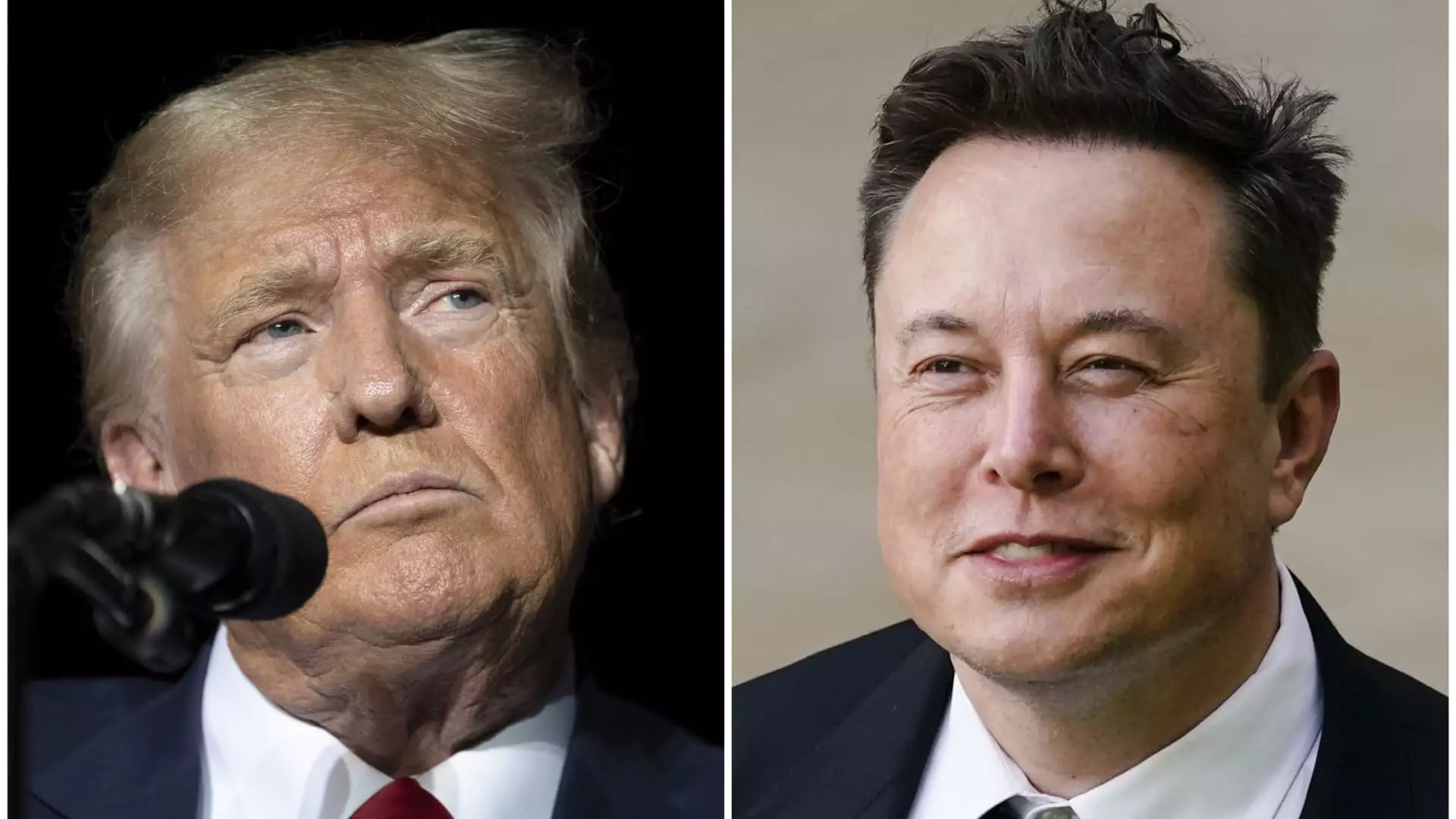In a landmark event, President Donald Trump announced a bold endeavor named the Stargate project, designed to funnel a staggering $500 billion into enhancing U.S. artificial intelligence infrastructure. This initiative is touted to generate upwards of 100,000 jobs almost immediately, showcasing a commitment to innovation and economic growth. Flanked by luminaries from the tech world, including major players such as OpenAI’s Sam Altman, Oracle’s Larry Ellison, and SoftBank’s Masayoshi Son, Trump painted an optimistic portrait of the project’s potential.
However, this announcement was not without dissent. Elon Musk, CEO of Tesla and SpaceX, took to his social platform X to publicly question the financial viability of the venture, sparking a heated dialogue about the responsibility and credibility of those involved. Musk’s assertion implied that the tech giants behind Stargate, particularly OpenAI and SoftBank, lacked the necessary financial resources to execute such an ambitious plan.
Critically, Musk’s commentary highlighted skepticism regarding SoftBank’s readiness to contribute. Citing his sources, he claimed that the conglomerate was significantly underfunded, estimating it to have less than $10 billion secured. This assertion received immediate pushback from Sam Altman, who with tact responded on the same platform, stating that Musk’s understanding was misguided. Altman’s respect for Musk’s accomplishments was echoed alongside a pointed reminder that the interest of the nation should take precedence over corporate stakes.
This exchange underscores the growing tensions within the tech community, particularly between Musk and Altman, which many attribute to their fraught professional history. The interplay between Musk’s high-profile commentary and Altman’s respectful yet firm rebuttal illustrates how personal rivalries can permeate professional spheres, particularly in sectors as expansive and impactful as artificial intelligence.
At the heart of the Stargate project lies a deep-seated concern regarding both national security and economic resilience. With technological advancements in AI expected to redefine industries and job markets, the U.S. government sees this initiative as crucial. The stakes are particularly high given the increasing competition from countries like China, which are investing heavily in AI capabilities and infrastructure.
Trump’s vision, as articulated during the announcement, focuses not only on job creation but also on establishing America as a leader in technology and innovation. However, Musk’s claims threaten to undermine this narrative, casting doubt on the financial commitments of the very entities meant to spearhead this mission.
This clash of perspectives raises an essential question: what happens when visionary projects, backed by significant political capital, encounter skepticism from influential voices within the industry?
The reactions to Musk’s comments were swift, particularly from those involved in the Stargate project. Larry Ellison reaffirmed the company’s commitment to the initiative, announcing that substantial groundwork was already in motion with the construction of data centers set to support AI development. Meanwhile, representatives from OpenAI and Oracle remained silent, possibly allowing Musk’s claims to simmer without amplified controversy.
Moreover, CNBC learned of a detailed phone conversation between Trump and Altman prior to the announcement, indicating that high-profile discussions are occurring behind the scenes that could significantly affect the project’s direction. The stakes extend beyond mere financial investment; they echo across the broader landscape of technological competition and national policy.
As the Stargate project progresses, its unfolding narrative will shed light on whether it can overcome the hurdles posed by criticism and competitive tensions among its innovators. The contrasting dynamics between Musk’s contention and the backing from major industry players create a fragile ecosystem, where trust, collaboration, and financial maneuvering will play pivotal roles.
Ultimately, the success of the Stargate project could serve as a touchstone for future AI initiatives in the U.S., setting precedents regarding investment, collaboration, and possibly defining the ethical framework within which these technologies evolve. The world will undoubtedly be watching as these tech titans navigate this high-stakes journey towards a future steeped in artificial intelligence.


Leave a Reply